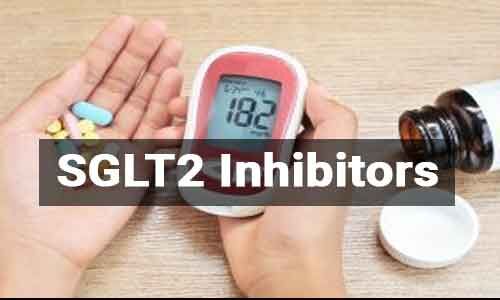- Home
- Medical news & Guidelines
- Anesthesiology
- Cardiology and CTVS
- Critical Care
- Dentistry
- Dermatology
- Diabetes and Endocrinology
- ENT
- Gastroenterology
- Medicine
- Nephrology
- Neurology
- Obstretics-Gynaecology
- Oncology
- Ophthalmology
- Orthopaedics
- Pediatrics-Neonatology
- Psychiatry
- Pulmonology
- Radiology
- Surgery
- Urology
- Laboratory Medicine
- Diet
- Nursing
- Paramedical
- Physiotherapy
- Health news
- Fact Check
- Bone Health Fact Check
- Brain Health Fact Check
- Cancer Related Fact Check
- Child Care Fact Check
- Dental and oral health fact check
- Diabetes and metabolic health fact check
- Diet and Nutrition Fact Check
- Eye and ENT Care Fact Check
- Fitness fact check
- Gut health fact check
- Heart health fact check
- Kidney health fact check
- Medical education fact check
- Men's health fact check
- Respiratory fact check
- Skin and hair care fact check
- Vaccine and Immunization fact check
- Women's health fact check
- AYUSH
- State News
- Andaman and Nicobar Islands
- Andhra Pradesh
- Arunachal Pradesh
- Assam
- Bihar
- Chandigarh
- Chattisgarh
- Dadra and Nagar Haveli
- Daman and Diu
- Delhi
- Goa
- Gujarat
- Haryana
- Himachal Pradesh
- Jammu & Kashmir
- Jharkhand
- Karnataka
- Kerala
- Ladakh
- Lakshadweep
- Madhya Pradesh
- Maharashtra
- Manipur
- Meghalaya
- Mizoram
- Nagaland
- Odisha
- Puducherry
- Punjab
- Rajasthan
- Sikkim
- Tamil Nadu
- Telangana
- Tripura
- Uttar Pradesh
- Uttrakhand
- West Bengal
- Medical Education
- Industry
Increasing empagliflozin dose provides significant clinical benefits in type 2 diabetes: Study

Japan: Switching from low-dose to high-dose SGLT2 inhibitor empagliflozin provides significant clinical benefits in patients with type 2 diabetes mellitus (T2DM), claims a recent study published in Diabetes Therapy.
The study showed that increasing empagliflozin dose significantly improved body mass index (BMI), body weight (BW), γ-glutamyltranspeptidase (GGT), and triglyceride (TG), and increased hematocrit (Hct) in patients with T2DM. Also, baseline triglyceride (TG) and diastolic blood pressure (DBP) independently predicted the improvement of HbA1c.
"When considering increasing the dosage of SGLT2 inhibitors in T2D patients who have inadequate glycemic control, these findings may provide useful information," Takeshi Matsumura, Department of Metabolic Medicine, Faculty of Life Sciences, Kumamoto University, Kumamoto, Japan, and colleagues wrote in their study.
Sodium-dependent glucose cotransporter 2 (SGLT2) inhibitors are reported to ameliorate blood glucose levels in type 2 diabetes by inhibiting the glucose reabsorption from glucose, thus increasing urinary glucose excretion. Most SGLT2 inhibitors have been reported to exert dose-dependent effects. However, not much is known about the benefits of increasing the dose of SGLT2 inhibitors in clinical use.
Against the above background, the researchers aimed to investigate the effect of increasing the dose of the SGLT2 inhibitor empagliflozin in T2DM.
For this purpose, the researchers collected 52 subjects with T2DM with inadequate glycemic control. The empagliflozin dose was increased from 10 to 25 mg, taken once daily, and the alterations in glycemic control and several other clinical parameters were evaluated.
Based on the study, the researchers reported the following:
- The increased dose of empagliflozin significantly ameliorated glycemic control.
- In addition, body weight (BW), body mass index (BMI), triglyceride (TG), and γ-glutamyltranspeptidase (GGT) were significantly decreased and hematocrit (Hct) was increased.
- Multivariate logistic regression analyses revealed that baseline diastolic blood pressure (DBP) (odds ratio 1.093) and baseline TG (odds ratio 1.012) were retained as independent predictors for the improvement of hemoglobin A1c (HbA1c) levels.
- Moreover, multivariate stepwise regression analyses revealed that changes in high-density lipoprotein cholesterol (β − 0.264) and HbA1c (β 0.302) were retained as independent predictors for changes in BMI.
"These results may provide useful information when considering whether to increase the dose of SGLT2 inhibitors in patients with type 2 diabetes who have inadequate glycemic control," the authors conclude.
Reference:
Matsumura, T., Makabe, T., Ueda, S. et al. Clinical Benefit of Switching from Low-Dose to High-Dose Empagliflozin in Patients with Type 2 Diabetes. Diabetes Ther (2022). https://doi.org/10.1007/s13300-022-01296-y
Dr Kamal Kant Kohli-MBBS, DTCD- a chest specialist with more than 30 years of practice and a flair for writing clinical articles, Dr Kamal Kant Kohli joined Medical Dialogues as a Chief Editor of Medical News. Besides writing articles, as an editor, he proofreads and verifies all the medical content published on Medical Dialogues including those coming from journals, studies,medical conferences,guidelines etc. Email: drkohli@medicaldialogues.in. Contact no. 011-43720751


